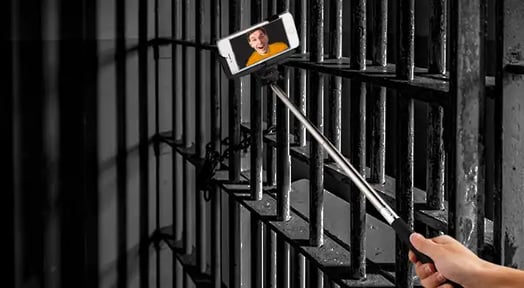Bloomberg reports that inmate messaging apps like Pigeonly, InmateAid, and Flikshop now have millions of users — and are poised to disrupt prison phone companies’ decades-old monopoly.

All started by ex-inmates, these apps aim to give inmates and their families a more affordable way to stay in contact –and bring prisons out of the digital Stone Age without sacrificing their grip on security.
What, email not good enough these days?
Actually, no. Prisons often make 1k+ inmates take turns using just 15 computers (with stripped down permissions) that charge $0.05/minute to get online — for context, many prison jobs pay just $0.08/hour.
What’s more, prison phones have been controlled by the same 3 (soon-to-be 2, pending a major merger approval) companies for the past 3 decades — allowing them to charge up to $0.21/min for long distance and pull in over $1.2B as of 2015.
And, though letters are often the easiest communications for inmates to receive, they can often feel burdensome for digitally spoiled friends and family to send.
All that means that people who are incarcerated often lose touch with the outside world — making it all the more difficult to re-enter society upon release.
The new guard of prison comm
Now, new apps offering convenient, low-cost communication services are thriving: InmateAid, a platform that lets families connect at lower rates for an $8.95 monthly fee, has over 1.2m users.
Platforms Pigeonly and Flikshop bridge the gap between digital and physical, letting loved ones take pictures through an app, then automatically printing and mailing them to inmates at a low rate.
Though Flikshop bills itself as “Instagram for prisons,” these ’grams aren’t exactly “insta.” They can still take a week or more to make it through the post and screening in the prison mail clerk’s room.
But, as they say in the biz, slow post is better than no post.
